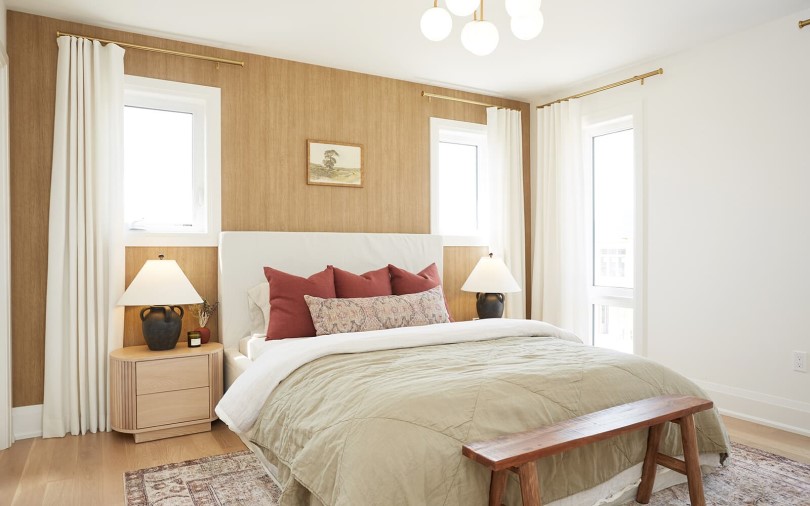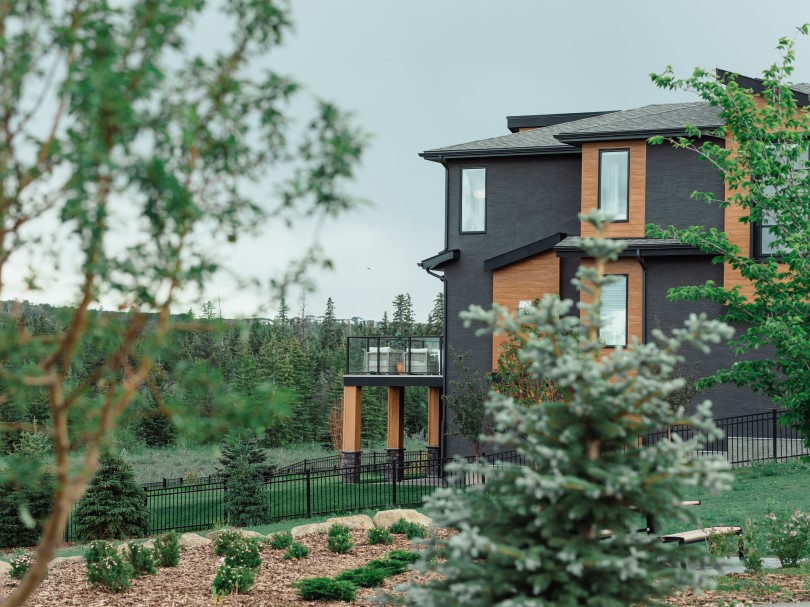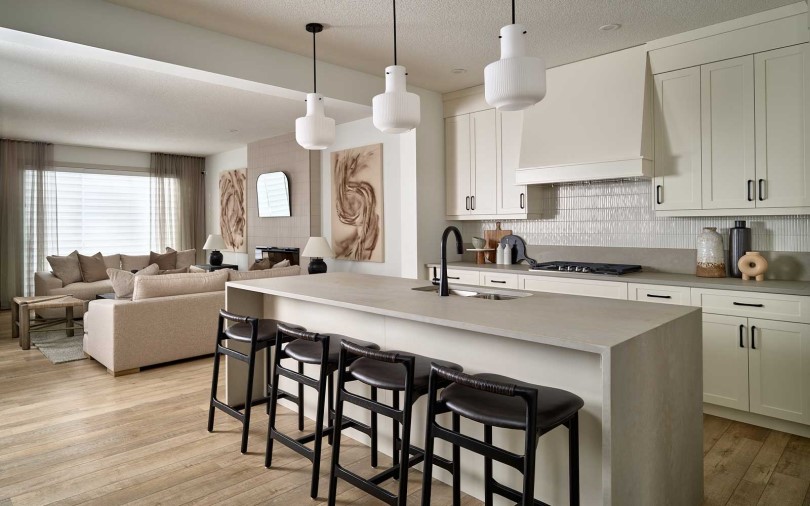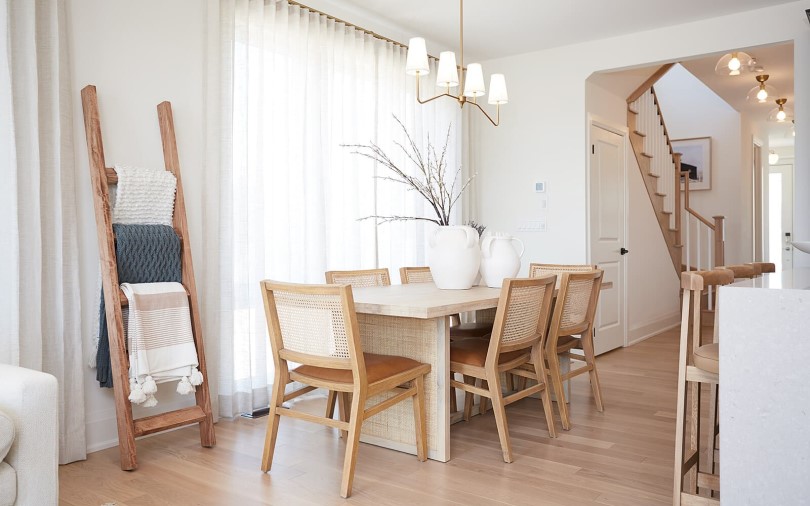How To Buy a House in Canada as a U.S. Citizen

Before diving into the process, it’s important to understand that Canada currently has restrictions on foreign homeownership that may limit your ability to buy property.
Important Update: Canada’s Foreign Buyer Ban
Canada has implemented a foreign buyer ban that restricts non-Canadians, including most U.S. citizens, from purchasing certain types of residential real estate. Originally introduced as a two-year measure starting January 1, 2023, the ban has been extended through January 1, 2027, to address housing affordability challenges.
The ban applies to foreign commercial enterprises and individuals who are not Canadian citizens or permanent residents.
While there are some exceptions to the ban, such as for certain temporary residents, work permit holders, or those purchasing recreational properties like cottages or vacation homes (in designated cities), most foreign buyers will face significant limitations.
Always confirm whether a property and your residency status qualify before beginning the homebuying process.
Can Americans Buy a Home in Canada?
If you qualify for an exception under the foreign buyer ban, then yes, it’s possible to buy property in Canada as a U.S. citizen. Whether you’re looking for an investment property, a vacation retreat, or planning a future move, buying a home in Canada as a U.S. citizen is an exciting opportunity.
However, it’s crucial to understand that foreign buyers face additional regulations, higher upfront costs, and stricter financing rules compared to Canadian residents. Settling the right expectations early will help you avoid surprises down the road.

Denmar Floor Plan, Traditional Collection, New Seaton Community, Pickering, Ontario
Canada’s stable real estate market, high quality of life, and stunning landscape make it one of the best places to call home. The benefits are clear, and if you’re ready to make your move, you’re certainly not alone!
Purchasing a property as a foreign buyer comes with unique considerations—from financing and taxes to legal fees and regulations. Navigating the Canadian homebuying process requires careful planning, especially if you're searching from across the border.
This guide will walk you through everything you need to know about buying a house in Canada as a U.S. citizen, helping you make informed decisions and bringing you one step closer to finding your dream home.

The Benefits of Buying Canadian Real Estate
Before diving into the “how” of purchasing a home in Canada, it’s worth exploring why so many U.S. buyers are drawn to Canadian real estate and the advantages of owning property north of the border (where allowed under current regulations).
Market Stability
Compared to some U.S. housing markets that experience extreme fluctuations, Canada’s real estate market tends to be more stable, making it a potentially safer long-term investment. Government regulations help prevent housing bubbles, and the demand for homes remains strong, particularly in major metropolitan areas.
Investment Potential
Canada’s real estate market has historically shown consistent growth and continues to offer strong investment potential. While home pricing has cooled in some areas - despite population growth, urban migration, and recent interest rate cuts - cities like Calgary and Edmonton stand out for their affordability and investment potential.
High Quality of Life
Canada is known for its universal healthcare, low crime rates, and well-maintained infrastructure. Many cities rank high in global livability indexes, offering safe and welcoming communities for homeowners.
Access to Nature and Outdoor Activities
If you enjoy outdoor recreation, Canada offers some of the world’s most stunning landscapes. From national parks to ski resorts and waterfront properties, Canadian real estate provides easy access to a variety of outdoor activities.
Favorable Exchange Rate
For U.S. buyers, the exchange rate often works in their favor, making Canadian property more affordable than similarly valued U.S. real estate.
Canadian Residency
Owning property in Canada does not grant residency, but it may support a longer-term plan for dual residency or eventual permanent residency. Still, homeownership alone doesn’t guarantee any immigration benefits, so consult an immigration expert before making assumptions about how a property purchase could impact residency status.

Robson 24 Floor Plan, Front Garage Collection, Silver Spruce Community, Calgary, Alberta
How House Hunting Works in Canada
House hunting in Canada is largely similar to the process in the U.S., but there are some differences worth noting:
Shopping for a Home Online
In both Canada and the U.S., shopping for a home online has become the norm, and the basics are largely the same. Just like in the U.S., you can house hunt online through sites like zillow.com and realtor.ca or search for a new construction home with a home builder in Canada. Simply set the filters for your desired location, price range, and home features, select your property type, and search away!
New Home Builders in Canada
You may also appreciate the help of a trustworthy home builder. The right home builder can guide you through the process, provide support if you have questions, and help you find your best place to call home. Their dedicated team can help you find the best home type and community based on your unique needs and lifestyle.
Who Can Help You Buy a Home?
There are several real estate professionals who can help guide you through the homebuying process as a U.S. citizen purchasing a home in Canada. You don’t have to go it alone, and we wouldn’t recommend it if this is your first time buying property in Canada.
- Builder—Consider working with a reputable builder to purchase a new build home. There are many benefits to buying a new construction home, including access to vibrant community amenities. Builders have teams of knowledgeable people who can help you every step of the way, including choosing your homesite, selecting your design finishes, and answering your financial questions.
- Licensed Real Estate Agent—Working with a realtor in Canada is similar to working with one in the U.S. Realtors can help search for properties on your behalf, arrange showings, and provide market expertise. If you’re working with a new home builder, you might not need a real estate agent as most builders offer a knowledgeable sales team to guide you through the process of buying a new home.
- Real Estate Lawyer—In Canada, a real estate lawyer is often required to help with the legal aspects of the transaction. This includes reviewing contracts, handling closing documents, negotiating closing costs and terms, and ensuring the title is clear.
- Mortgage Lender— While you aren’t required to use a Canadian bank for your mortgage financing, doing so can streamline the process and help you easily navigate each step. Many major banks offer mortgage programs for non-residents, and some U.S. banks with Canadian branches may provide cross-border mortgage solutions.
As in the U.S., many real estate professionals have working relationships with one another. It may benefit you to reach out to someone, like a builder or real estate agent, who can then introduce you to lawyers, lenders, and others with whom they have relationships and can help guide you through the process.
Keep in mind: not all real estate professionals specialize in working with non-resident buyers. Make sure your agent, lawyer, and lender are familiar with cross-border purchases and the latest restrictions affecting foreign buyers.

Griffith Floor Plan, Luxury Duplex Collection, Crown Park Community, Calgary, Alberta
Understanding Canadian Financing
A mortgage lender is one of the key players in the homebuying process, especially for U.S. citizens buying property in Canada. In both countries, a lender will assess your financial situation, offer loan options, and guide you through financing. However, the mortgage process in Canada differs from that in the U.S. in several important ways, which is crucial to understand before committing to a loan.
Financing Options for Non-Residents
Canadian mortgage lenders, such as major banks like RBC, CIBC, TD Canada Trust, or BMO, offer loans to U.S. citizens looking to purchase property in Canada. While some U.S. banks also offer cross-border mortgages, working with a Canadian lender is often more efficient, as they are familiar with Canadian mortgage regulations, interest rates, and market conditions. A mortgage lender will help determine what type of loan you are eligible for based on your financial health and the property you wish to buy.
If you need financing, many Canadian banks offer mortgages to non-residents, but the process is different from what you might expect in the U.S.:
- Higher Down Payment – Foreign buyers typically need at least 35% down, compared to lower down payments available in the U.S.
- Limited U.S. Credit Recognition – Canadian banks may not recognize your U.S. credit history. Instead, they may require alternative documentation, such as proof of income, tax returns, or bank statements.
- Fixed vs. Variable Rates – Mortgage terms in Canada are often shorter, with common fixed-rate terms of 1 to 5 years (compared to the U.S. standard of 15-30 years).
- Stress Test Requirement – Many borrowers must pass a mortgage stress test, proving they can afford payments at a higher interest rate than what they’re offered.
Pre-Approval Process
Just like in the U.S., obtaining pre-approval from a Canadian lender allows you to understand how much you can borrow and sets a budget for your home search. In Canada, the pre-approval process involves submitting financial documents such as income statements, tax returns, and proof of assets.
Interest Rates and Terms
A Canadian lender will offer different interest rates based on the type of mortgage you select. Mortgages in Canada tend to have slightly lower interest rates than in the U.S., especially for fixed-rate mortgages, but Canadian mortgage terms are usually shorter (typically five years) compared to the 30-year terms commonly found in the U.S. While U.S. citizens can get a fixed-rate mortgage in both countries, adjustable-rate mortgages (ARMs) are more common in the U.S. than in Canada, where most mortgages are fixed-rate for at least the first five years.
Mortgage Insurance
In Canada, mortgage insurance (via the CMHC) is mandatory for buyers with a down payment of less than 20%. In the U.S., mortgage insurance may be required with a down payment of less than 20%, but it varies by lender and loan type (such as FHA loans). Mortgage insurance in Canada is typically paid as a lump sum and added to the loan, whereas in the U.S., it’s usually added to the monthly payments.
Credit Scores
Canadian lenders don’t use U.S. credit scores, which can make the mortgage process more challenging for U.S. buyers. Instead, Canadian lenders may rely on alternative forms of credit verification, such as Canadian credit reports or other financial documents, to assess your eligibility. This means that U.S. buyers will need to be more proactive about providing comprehensive documentation to prove their creditworthiness.
Canadian banks
While not mandatory, opening a Canadian bank account can simplify transactions related to your home purchase. It allows you to:
- Pay your mortgage, property taxes, and utility bills in Canadian dollars.
- Avoid foreign exchange fees on every transaction.
- Establish a financial footprint in Canada, which may help if you later seek residency or more financing options.

Taxes and Legal Fees
When buying property in Canada as a U.S. citizen, you’ll need to account for taxes and legal fees, which can vary by province. Here are the key costs to consider:
Taxes
- Property Transfer Tax (PTT): A one-time tax at closing, calculated as a percentage of the purchase price. Rates vary by province (e.g., 1-3% in British Columbia and Ontario). First-time home buyers are sometimes exempt from paying the land transfer tax or can have some or all of their payment refunded.
- Foreign Buyer Taxes: These taxes apply only where foreign ownership is permitted and can add 20-25% to the purchase price in certain provinces. Always confirm if the foreign buyer tax and ban apply to your target area before proceeding.
- Annual Property Taxes: Ongoing municipal taxes based on the assessed value of your home, similar to those in the U.S.
- Capital Gains Tax: When selling, non-residents may owe capital gains tax in Canada, typically 25-50% of the gain, and must also report the sale to the IRS.
Legal Fees
Real Estate Lawyer: Required in some provinces (e.g., Ontario) to review contracts, handle funds, and finalize the transaction. Legal fees can vary considerably but may amount to $2,500 CAD or more, depending on your specific situation.

MacKay Floor Plan, Duplex Collection, The Orchards Community, Edmonton, Alberta
Laws and Regulations
- Foreign Buyer Ban: Canada’s ban on foreign ownership of residential property prohibits most non-Canadians, including U.S. citizens, from buying residential real estate, and is in effect until January 1, 2027. There are limited exceptions, such as for temporary residents or those purchasing outside major metropolitan areas.
- Foreign Buyers Tax: In addition to the federal ban, some provinces, like Ontario and British Columbia, impose a Non-Resident Speculation Tax (NRST) of 20-25% on foreign homebuyers. Alberta and many other provinces do not charge this tax.

Denmar Floor Plan, Traditional Collection, New Seaton Community, Pickering, Ontario
Ready to Get Started?
Buying property in Canada as a U.S. citizen is possible, but not always permitted under the current law. For eligible buyers, the process involves extra layers of regulation, financing restrictions, and taxation that differ from U.S. norms.
Consulting knowledgeable professionals can help ensure compliance with current regulations and help you navigate the process with ease.
Ready to find your dream home in Canada? Explore where we build and connect with our sales team when you’re ready to learn more. We’ll be expecting you!
The information provided in this blog post is for informational purposes only and should not be considered investment, professional, or legal advice. Please consult a professional before making real estate decisions. Brookfield Residential is not responsible for any actions taken based on the information provided.
